軸の長さとデータ単位の長さの比を制御
x 軸、y 軸、および z 軸の相対的な長さ (プロット ボックスの縦横比) は制御できます。各軸の 1 つのデータ単位の相対的な長さ (データ縦横比) も制御できます。
プロット ボックスの縦横比
プロット ボックスの縦横比は、x 軸、y 軸、および z 軸の相対的な長さです。既定では、プロット ボックスの縦横比は、Figure のサイズに基づきます。この縦横比は、関数 pbaspect を使用して変更できます。この比を相対的な軸の長さを表す正の値の 3 要素ベクトルとして設定します。
たとえば、楕円をプロットします。次に、x 軸が y 軸と z 軸 (非表示) の長さの 2 倍になるようにプロット ボックスの縦横比を設定します。
t = linspace(0,2*pi);
plot(sin(t),2*cos(t))
grid on
pbaspect([2 1 1])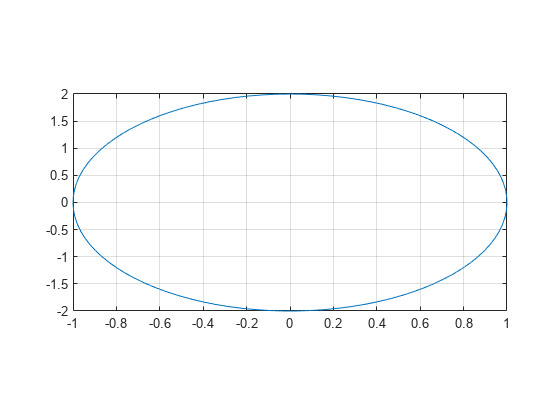
z 軸を表示するために、3 次元表示で座標軸を表示します。
view(3)
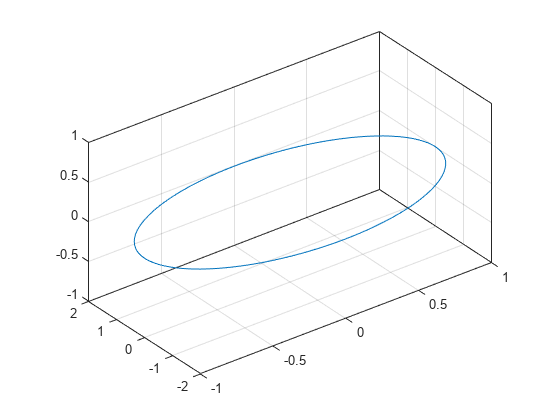
正方形の座標軸にする場合は、[1 1 1] を使用します。この値は、axis square コマンドの使用時と同様になります。
t = linspace(0,2*pi);
plot(sin(t),2*cos(t))
grid on
pbaspect([1 1 1])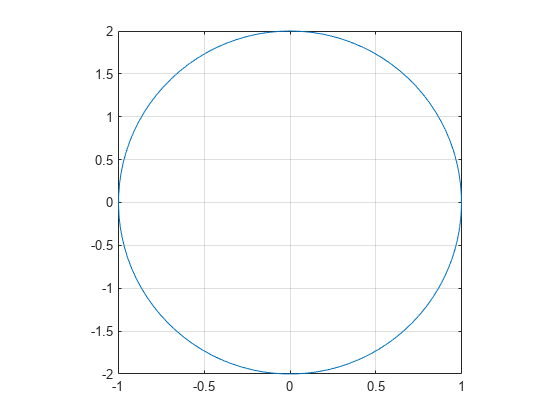
データの縦横比
データの縦横比は、x 軸、y 軸および z 軸のデータ単位の相対的な長さです。この縦横比は、関数 daspect を使用して変更できます。各軸でのデータ単位の相対的な長さを表す正の値からなる 3 要素ベクトルとしてこの比を設定します。
たとえば、x 軸の 0 から 1 までの長さが y 軸の 0 から 0.5 までの長さ、および z 軸 (非表示) の 0 から 2 までの長さと等しくるなるようにこの比を設定します。
t = linspace(0,2*pi);
plot(sin(t),2*cos(t))
grid on
daspect([1 0.5 2])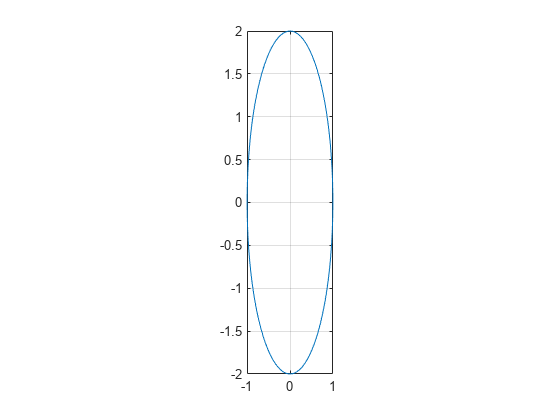
z 軸を表示するために、3 次元表示で座標軸を表示します。
view(3)
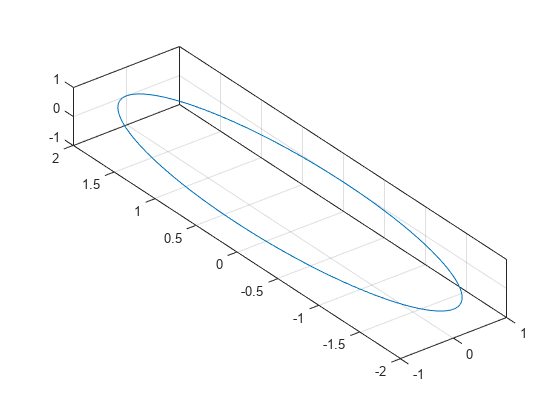
すべての方向でデータ単位を等しくする場合は、[1 1 1] を使用します。この値は、axis equal コマンドの使用時と同様になります。x 方向の 1 つのデータ単位が y および z 方向の 1 つのデータ単位と同じ長さです。
t = linspace(0,2*pi);
plot(sin(t),2*cos(t))
grid on
daspect([1 1 1])
既定の比率に戻す
データの縦横比を変更します。次に、axis normal コマンドを使用して、既定のプロット ボックスとデータの縦横比に戻します。
t = linspace(0,2*pi); plot(sin(t),2*cos(t)) grid on daspect([1 1 1]) axis normal
